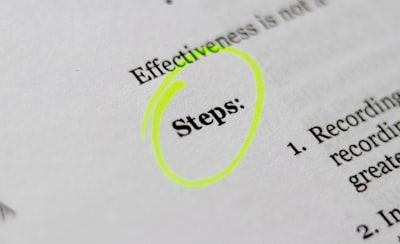Identifying a narcissistic partner and dealing with the challenges of being in a relationship with them can be difficult. Narcissistic Personality Disorder (NPD) is a mental health condition that exhibits a grandiose sense of self-importance and a lack of empathy. Its long-term effects can be devastating. It is essential to set healthy boundaries and seek professional support when necessary. Below you will find a checklist for identifying a narcissistic partner and expert advice from therapists on how to navigate the challenges of being in a relationship with them.
Identifying A Narcissistic Partner
Identifying a narcissistic partner is essential for protecting yourself from the potentially devastating effects of a relationship with someone who has Narcissistic Personality Disorder (NPD). While it is important to note that only a qualified expert can diagnose NPD, there are several signs and behaviors that can indicate a narcissistic partner. Here are some key red flags to look out for:
1. Lack of empathy
Narcissistic individuals often struggle to understand or acknowledge the feelings and needs of others. They may be unable to tune in to your emotions or show compassion.
2. Sense of entitlement
A narcissistic partner may believe that they are inherently special and deserving of special treatment. They may expect you to cater to their needs and wants without considering your own.
3. Constant need for admiration
Narcissists crave constant praise and validation. They may go to great lengths to ensure that they are always the center of attention and seek admiration from others.
4. Manipulative behavior
Narcissistic partners are often skilled manipulators. They may use tactics such as gaslighting, denying reality, or twisting the truth to control and manipulate you for their own benefit.
5. Grandiosity
Narcissists may have an exaggerated sense of their own importance and talents. They may believe that they are superior to others and should only associate with people they deem “worthy.”
6. Exploitation of others
Narcissists have a tendency to exploit and take advantage of others for their own gain. They may use people as tools to achieve their own goals without regard for the well-being or feelings of others.
7. Constant need for attention
Narcissistic partners may have an insatiable need for attention and validation. They may become disinterested or dismissive when they are not the center of attention in a conversation or social setting.
8. Poor boundaries
Narcissistic individuals often struggle to respect and maintain healthy boundaries with others. They may disregard your boundaries and expect you to cater to their needs at all times.
9. Pattern of unstable relationships
Narcissists often have a history of unstable and unhealthy relationships. They may struggle to maintain long-term partnerships due to their self-centeredness and inability to meet the emotional needs of others.
It is important to note that individuals with NPD may exhibit some or all of these behaviors to varying degrees. If you suspect that your partner may be a narcissist, it is crucial to consider the impact of these behaviors on your own well-being and the health of the relationship. Seek support from trusted friends, family, or professionals to help navigate the challenges of being in a relationship with a narcissistic partner.
This article is not meant to diagnose your partner, but rather to provide you with information and awareness. It is essential to prioritize your own emotional well-being and safety in any relationship.
Checklist For Identifying A Narcissistic Partner

- Do they have a grandiose sense of self-importance and believe they are superior to others?
- Are they preoccupied with fantasies of unlimited success, power, or ideal love?
- Do they believe they are special and can only associate with other high-status individuals?
- Is there a constant need for excessive admiration and validation from others?
- Do they exhibit a sense of entitlement and expect special treatment?
- Are they interpersonally exploitative and manipulate others for their own gain?
- Do they lack empathy and fail to understand or acknowledge others’ feelings?
- Do they experience envy of others or believe that others are envious of them?
- Do they demonstrate arrogant and haughty behaviors or attitudes?
Narcissistic partners often exhibit signs such as conversation dominance, making careless demands, and relying on verbal cut-offs to control conversations. They frequently exhibit excessive self-praise and are quick to offer unsolicited advice. They may use passive-aggressive tactics to manipulate their partner and have a history of exploiting others for their own gain.
In addition to these behaviors, individuals with narcissistic personality disorder are driven by a need for power and control. They may have a poor comprehension of love and struggle to empathize with their partner’s feelings. Their sense of entitlement leads them to disregard their partner’s boundaries and expect admiration and [1] loyalty without reciprocation.
It is important to note that narcissism exists on a spectrum, and not all individuals who display some narcissistic traits have narcissistic personality disorder. However, if many of these behaviors are consistently present in your relationship, it may be a red flag indicating that your partner exhibits narcissistic tendencies.
If you suspect that your partner is a narcissist, it is essential to trust your intuition and establish healthy boundaries. Seek support from friends, family, or a therapist who can help you navigate the challenges of being in a relationship with a narcissist. It may be necessary to consider leaving the relationship if it becomes emotionally abusive or detrimental to your wellbeing.
This checklist is not a diagnosis, but a tool to help you recognize and understand the signs of narcissism in your partner. Being informed and empowered is the first step in managing and protecting yourself in a relationship with a narcissistic individual.
Dealing With A Narcissistic Partner

Having a narcissistic partner can be incredibly challenging and emotionally draining. It’s important to recognize the signs of narcissism in your partner and develop strategies to cope with their behavior. Here are some tips for dealing with a narcissistic partner:
1. Educate Yourself
Learn about narcissistic personality disorder and the traits associated with it. Understanding the disorder can help you depersonalize the hurtful actions of your partner and develop empathy for their struggles.
2. Set Boundaries
Clearly communicate your boundaries and expectations to your partner. Let them know which behaviors are unacceptable and enforce those boundaries. Remember to prioritize your own well-being and stick to your limits.
3. Communicate Your Feelings
Express your emotions and concerns to your partner in a calm and assertive manner. Be specific about how their actions affect you and make it clear that you expect to be treated with respect. However, be prepared for a defensive or volatile reaction from your partner.
4. Don’t Internalize Hurtful Comments
Remember that the hurtful comments and behaviors of your partner are not a reflection of your worth or value. Remind yourself that their actions are a result of their own insecurities and struggles with narcissism. Build a support network of friends and family who can provide emotional support.
5. Practice Self-Care
Focus on taking care of yourself and prioritize your own well-being. Engage in activities that bring you joy and help you maintain a sense of self. Seek therapy or counseling to help you navigate the challenges of being in a relationship with a narcissistic partner.
6. Consider Leaving the Relationship
If the relationship becomes emotionally or physically abusive, it may be necessary to leave for your own safety and well-being. Trust your instincts and prioritize your own happiness and mental health.
Dealing with a narcissistic partner is not easy. It requires patience, compassion, and a commitment to self-care. Seek support from mental health professionals and trusted friends or family members who can provide guidance and understanding.
Long-Term Effects Of Narcissistic Personality Disorder

Narcissistic Personality Disorder (NPD) can have significant long-term effects on individuals who exhibit narcissistic traits. These effects can impact their relationships, personal well-being, and overall quality of life.
One of the most notable long-term effects of NPD is the strain it puts on relationships. Narcissists often struggle with empathy and have an excessive need for admiration and attention. This can lead to difficulties in maintaining healthy, fulfilling connections with others. Over time, the constant need for validation and control can erode trust and create a toxic dynamic within relationships.
Furthermore, narcissists may find it challenging to form genuine, meaningful connections with others. Their inflated sense of self-importance and lack of empathy can hinder their ability to establish authentic emotional bonds. This isolation and inability to form deep connections can lead to feelings of loneliness and dissatisfaction in their personal lives.
The long-term effects of NPD also extend to the narcissist’s own mental and emotional well-being. Their constant need for external validation and their inability to handle criticism or perceived failure can lead to chronic feelings of inadequacy and low self-esteem. These negative self-perceptions can impact their overall mental health and contribute to the development of anxiety and depressive disorders.
Additionally, narcissists may struggle with maintaining healthy coping mechanisms and may resort to unhealthy behaviors to protect their fragile ego. This can manifest as emotional manipulation, lies, or even aggression towards others. These destructive patterns not only harm those around them but also contribute to a cycle of negative and harmful behavior that further isolates the narcissist.
Over time, these long-term effects can lead to a deeper sense of unhappiness, dissatisfaction, and discontentment in the narcissist’s life. Their inability to form healthy relationships and their constant need for external validation can leave them feeling unfulfilled and lacking in genuine happiness.
It is important to note that overcoming NPD and its long-term effects is possible with professional help and support. Psychotherapy, such as Dialectical Behavior Therapy (DBT), can help narcissists develop self-awareness, empathy, and healthier coping mechanisms. By addressing the root causes of their narcissistic traits and learning new ways of relating to others, individuals with NPD can [2] work towards healing and creating more fulfilling and balanced lives.
The long-term effects of NPD for narcissists are far-reaching and can impact their relationships, personal well-being, and overall happiness. It is crucial for individuals with NPD to seek professional help and support in order to address these effects and work towards healing and personal growth.
Dating A Narcissist

Dating someone with narcissistic traits can be challenging. It’s important to be able to recognize the red flags and proceed with caution. While only a mental health specialist can diagnose narcissistic personality disorder (NPD), there are signs that can indicate [3] someone may have narcissistic traits.
People with narcissistic traits often lack empathy and vulnerability. They have an over-inflated sense of self and a strong need for admiration. They may play games, act manipulatively, and exploit others for their own benefit. It’s important to be aware that a relationship with a narcissist may be different than what you’re used to and may require adjustments in expectations.
Here are some red flags to look out for when dating someone with narcissistic traits:
1. Lacking empathy
They have a limited ability to empathize with others and show no desire for emotional intimacy.
2. Unrealistic sense of entitlement
They believe others should cater to their desires and become angry when corrected or treated as equals.
3. Needs to be the center of attention
They feel distressed when they are ignored or when others receive more attention than they do.
4. Displays arrogant behaviors and attitudes
They often talk about their successes, romantic conquests, and material possessions. They may complain about how much they are hit on.
5. Exploits and takes advantage of others
They use others for their own gain. They may befriend someone just to use their resources.
6. Regularly talks about fantasies of power, success, or beauty
Their conversations revolve around material things and lack depth.
7. Behaves as if they are exceptionally “special”
They believe they can only be understood by other “special” people.
8. Envious of others or think others are envious of them
They may gossip about people they envy or come up with reasons to discredit their success.
It can be challenging to spot a narcissist on the first date, but there are a few red flags you can look out for:
- Love-bombing: Excessive affectionate communication and gestures at the beginning of the relationship may indicate narcissistic tendencies.
- One-sided conversations: If your date only talks about their interests and shows little interest in yours, it could be a sign of narcissism.
- Treatment of others: Pay attention to how your date treats waitstaff or other people they consider “below” them. Rudeness or disrespect may be a red flag.
- Excessive need for attention and validation: Constantly seeking attention and being overly concerned with appearance can be signs of narcissism.
- Lack of vulnerability: If your date focuses solely on their achievements and avoids personal questions, it may indicate a lack of emotional depth.
If you suspect you are dating a narcissist, it’s important to reflect on whether you are comfortable exploring this type of dynamic. Educating yourself on narcissism, setting clear boundaries, and seeking professional support or therapy can help navigate the relationship.
Narcissism exists on a spectrum, and dating a narcissist can be challenging. While it is possible to sustain a relationship with a narcissist, it will likely require adjusting expectations and understanding that you may not get all you want and need from the relationship. Developing healthy coping strategies and having a strong support system outside of the relationship can also be helpful.
Remember to prioritize your own well-being and take the necessary steps to protect yourself in the relationship.
Expert Insights On Narcissism And Relationships
Narcissism can have a significant impact on relationships, and it’s important to be aware of the signs to determine if your partner may have narcissistic traits. Here are some expert insights on narcissism and relationships:
1. Gaslighting and Manipulation
Narcissists often engage in gaslighting, a manipulative tactic where they deny or question your reality, making you doubt your own perceptions. This behavior is designed to maintain control over you and can be emotionally abusive.
2. Conversation Dominance
A narcissistic partner will often dominate conversations, not allowing you to express your views or opinions. They may constantly redirect the conversation back to themselves and their achievements, dismissing your thoughts and needs.
3. Lack of Empathy
Empathy is a crucial component of healthy relationships, but narcissists lack empathy for others. They are primarily focused on their own needs, and they may dismiss or trivialize your emotions, leading to feelings of isolation and emotional neglect.
4. Superficiality and Image Obsession
Narcissists often prioritize appearances and maintaining a certain image. They may be preoccupied with their social media presence or how they are perceived by others, often at the expense of genuine emotional connection and intimacy in the relationship.
5. Demanding and Exploitative Behavior
Narcissists can be demanding and exploitative, expecting you to prioritize their needs over your own. They may make careless demands that don’t consider your schedule or responsibilities and may manipulate or use you for their own benefit.
6. Lack of Boundaries and Verbal Cut-Offs
Narcissistic partners often disregard your boundaries and may interrupt or cut you off when you try to express your thoughts or feelings. They may invalidate your experiences or dismiss your wants and needs, further eroding your self-esteem.
7. Emotional Aggression and Humiliation
Narcissists may resort to emotional aggression, humiliation, or public embarrassment when they feel threatened or when their needs are not being met. This can cause significant emotional harm, leading to feelings of shame and guilt.
8. Difficulty with Criticism and Accountability
Narcissists struggle with accepting criticism or taking responsibility for their actions. They may deflect blame onto others or become defensive when confronted with their behavior. This can prevent any meaningful growth or resolution in the relationship.
It’s important to note that not every person who exhibits some of these traits is a narcissist, as these behaviors exist on a spectrum. However, if you consistently notice several of these red flags in your partner’s behavior, it may be worth seeking professional help or considering whether the relationship is healthy for you.
You deserve to be in a relationship where your needs are valued, and your emotions are respected. Trust your instincts and seek support from trusted friends, family, or mental health professionals if you suspect you are in a relationship with a narcissistic partner.
Red Flags To Look Out For In Relationships
When it comes to identifying a narcissist in a relationship, it’s crucial to be aware of the red flags that may indicate their presence. Here are some signs to watch out for:
1. Lack of empathy
Narcissists often have a limited capacity for empathy and struggle to understand or validate others’ emotions.
2. Excessive need for attention
They constantly seek validation and expect to be the center of attention in any situation.
3. Unsupportive behavior
Narcissists are often self-absorbed and prioritize their own needs over others, resulting in a lack of support and understanding.
4. Inflated self-image
They have an exaggerated sense of self-importance and may constantly brag about their achievements, possessions, or social status.
5. Lack of consideration for others
Narcissists disregard the feelings and needs of those around them, making it challenging to maintain a healthy and balanced relationship.
6. Sensitivity to criticism
They react strongly to criticism, often becoming defensive or angry, and may go to great lengths to avoid any form of criticism or accountability.
7. Gaslighting
Narcissists manipulate and distort reality to make their partner question their own sanity, often causing confusion and self-doubt.
8. Blaming their partner
They typically shift blame onto their partner, making them believe they are the problem in the relationship.
By being aware of these red flags, you can better assess whether your partner exhibits narcissistic traits. It’s important to remember that not everyone who displays some of these behaviors is necessarily a narcissist, but if you notice a pattern of these signs, it may be worth further exploration.
If you suspect you are in a relationship with a narcissist, consider seeking support from a therapist or counselor who can help guide you through the challenges of dealing with a narcissistic partner. They can provide valuable insights and strategies to protect your well-being.
It is crucial to prioritize your own happiness and mental health. If the relationship becomes toxic or abusive, it may be necessary to consider ending it and seeking professional help to heal from the experience.
Identifying narcissistic traits in a partner is essential for maintaining a healthy and fulfilling relationship. By recognizing the red flags and seeking support, you can navigate the challenges associated with narcissism and protect your well-being.
Case Study: Signs Of A Narcissistic Partner

Are you wondering if your partner might be a narcissist? It’s important to be aware of the signs and traits associated with narcissistic personality disorder (NPD) in order to determine if your partner fits the profile. Here are some key indicators to look out for:
1. Lack of empathy
A narcissistic partner tends to have little to no empathy for others. They struggle to understand or care about the feelings and needs of those around them.
2. Grandiose sense of self-importance
Narcissists often have an inflated view of their own worth and believe they are special or unique compared to others.
3. Exploitative behavior
Narcissistic partners may exploit others for their own gain. They might take advantage of your resources, skills, or connections without consideration for your needs or well-being.
4. Constant need for admiration
A narcissistic partner seeks constant validation and praise. They crave admiration and attention from others and expect you to fulfill this need.
5. Manipulative and controlling
Narcissists are often manipulative and use various tactics to control their partners. They may gaslight you, making you doubt your own reality and putting the blame on you for any problems in the relationship.
6. Lack of accountability
Narcissistic partners rarely take responsibility for their actions or apologize sincerely. They may deflect blame onto others or make excuses for their behavior.
7. Obsession with appearance and status
Narcissists often prioritize their own image and status. They may be overly concerned with their physical appearance and how they are perceived by others.
8. Unrealistic expectations
Narcissistic partners may have unrealistic expectations of how you should meet their needs and desires. They may demand constant attention, praise, or special treatment without reciprocating.
9. Pattern of unstable relationships
Narcissists often have a history of unstable and short-lived relationships. They may struggle to maintain long-term commitments and may become bored or dissatisfied easily.
10. Lack of emotional intimacy
Narcissistic partners struggle to establish deep emotional connections and may prioritize their own needs and desires over yours.
This is just a guide and not a definitive diagnosis. It’s essential to consult with a mental health professional to determine if your partner truly has narcissistic personality disorder. If you suspect your partner is a narcissist, it may be helpful to set clear boundaries, seek support from trusted friends or family, and consider seeking therapy for yourself. Remember, maintaining a healthy relationship requires mutual respect, empathy, and open communication.
Dealing With A Narcissistic Partner: Therapist’S Advice
Having a partner with narcissistic traits can be challenging and potentially damaging to your mental health. However, there are strategies you can use to navigate the relationship and protect yourself. Here are some tips from a therapist to help you deal with a narcissistic partner:
1. Recognize and Understand Narcissistic Behavior
Educate yourself about narcissistic personality disorder (NPD) to better understand your partner’s behavior. This will help you depersonalize their hurtful actions and realize that it’s not about you. Remember, NPD is a mental health condition and not a personal [4] choice.
2. Don’t Idealize Your Partner
It’s important not to idealize your partner and see them as they truly are, flaws and all. Look at how they treat others, their behavior in previous relationships, and how they behave when they’re upset. Having realistic expectations for your relationship is crucial.
3. Communicate Your Feelings
Clearly communicate how your partner’s actions affect you. Make your concerns heard instead of staying silent to “keep the peace.” Be prepared for a defensive reaction or intense anger when you talk about their behavior. Remember, protecting yourself from narcissistic abuse involves asserting your needs and feelings.
4. Set Clear Boundaries
Set clear boundaries to protect yourself from intrusion and manipulation by your partner. Let them know what you will and won’t tolerate in the relationship. Be prepared for pushback, but hold firm in enforcing your boundaries.
5. Do Not Internalize Hurtful Comments
Do not internalize hurtful comments from your partner. Remember that their actions are a reflection of their narcissistic personality disorder, not a reflection of your worth. Building resilience and developing a strong sense of self can help you maintain a healthy perspective on their hurtful behavior.
6. Develop a Support Network
Cultivate relationships with friends and family who can provide emotional support outside of your relationship. Narcissistic partners may try to isolate you and maintain control over your attention. Having a support network can help you receive the emotional fulfillment you need.
7. Consider Individual Therapy
Consider seeking therapy for yourself, even if your partner is not willing to seek treatment. A therapist can provide guidance, support, and help you prioritize your own needs. They can also help you recognize manipulation tactics and abusive behaviors.
8. Consider Leaving the Relationship
If the narcissistic behavior becomes emotionally or physically abusive, it may be necessary to consider leaving the relationship. Ending a relationship is difficult, but your mental and physical well-being should be a priority. If you feel isolated, doubt your self-worth, or fear being yourself around your partner, it may be time to leave.
These suggestions are not foolproof and only you can decide what is best for your well-being. It’s essential to prioritize your own needs and seek support from professionals and loved ones. Trust your instincts and reach out for help if you need it.
Identifying whether your partner is a narcissist can be a challenging and emotionally draining process. Understanding the signs and behaviors associated with Narcissistic Personality Disorder (NPD) is essential for protecting yourself and your well-being. By recognizing the red flags and seeking support, you can navigate the challenges of being in a relationship with a narcissistic partner.
Remember, only a qualified expert can diagnose NPD, but there are several signs and behaviors that can indicate narcissistic traits. Lack of empathy, a sense of entitlement, constant need for admiration, manipulative behavior, grandiosity, exploitation of others, constant need for attention, poor boundaries, and a history of unstable relationships are all potential red flags to watch out for.
If you suspect your partner may be a narcissist, it is crucial to prioritize your own emotional well-being and safety. Set healthy boundaries, communicate your feelings, and seek professional support when necessary. Educate yourself about narcissism, develop a support network, and consider individual therapy to help navigate the challenges of being in a relationship with a narcissistic partner.
In some cases, it may be necessary to consider leaving the relationship if it becomes emotionally or physically abusive. Trust your instincts and prioritize your own happiness and mental health above all else.
Remember, this article is not meant to diagnose your partner, but rather to provide information and awareness. By being informed and seeking support, you can protect yourself and make the best decisions for your well-being.
References
[1] Narcissistic Personality Disorder (NPD) – Merck Manuals
[2] The dark side of empathy in narcissistic personality disorder
[3] Am I Dating a Narcissist Quiz
[4] 4 Strategies to Manage a Narcissistic Partner
Neal has more than 10 years of experience as a dating coach. He has guided 100+ men and women through the intricate art of courtship and transformed their love lives. Neal’s knowledge of dating strategies, coupled with his genuine empathy and understanding, allows him to help his clients foster genuine and meaningful relationships.



